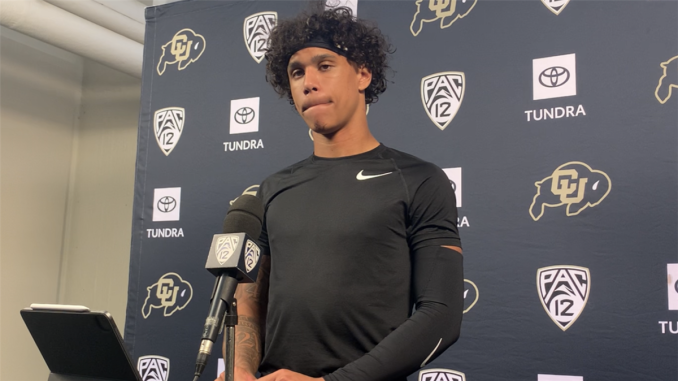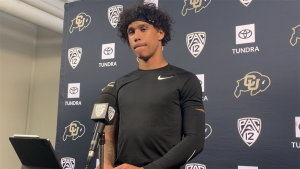
**BREAKING!!! Arizona State Wide Receiver Jordyn Tyson Threatens to Leave the Team if Concerns Are Not Addressed**
In a stunning turn of events, Arizona State University wide receiver Jordyn Tyson has publicly threatened to leave the football team if his concerns about team safety, support staff, and overall player welfare are not adequately addressed. Tyson’s statements come amidst growing scrutiny over player conditions and mental health in college athletics, highlighting issues that have long been a topic of conversation among student-athletes nationwide.
Minutes ago, Tyson took to social media to express his frustrations, stating, “If we can’t ensure the safety and well-being of the players on this team, I don’t know how I can continue to be a part of this program.” The post quickly garnered significant attention, bobbing across various platforms and igniting discussions about athlete advocacy within college sports.
Tyson’s decision to leverage his platform reflects a broader sentiment among college athletes taking proactive measures towards their welfare and the accountability of coaching staff and administration. In recent months, both current players and alumni have voiced concerns regarding the physical and mental rigors imposed on players, particularly in the high-stakes environment of college football. Injuries, burnout, and mental health issues are becoming increasingly critical topics of discussion, prompting athletes like Tyson to step forward and demand change.

Sources close to the program revealed that Tyson’s frustrations stem from multiple factors, including insufficient support systems for player mental health, a perceived lack of openness in communication between players and coaching staff, and concerns regarding injury management. According to insiders, Tyson has been vocal about needing more comprehensive resources for players who may be struggling both on and off the field.
This call for change comes at a pivotal moment for college football, an industry that has seen immense pressures placed on young athletes. The ongoing debate around athlete’s rights, compensation, and overall care has put universities and their athletic departments under the microscope. With the NCAA recently revising some of its policies regarding athlete welfare, Tyson’s statements may further catalyze necessary reforms that could impact not just Arizona State, but programs across the country.
Tyson’s commitment to seeking change has resonated with his teammates, many of whom have rallied around him in support. Team captain and fellow wide receiver, Maurice D. Williams, stated in a press conference, “We need to support each other, and Jordyn is right to speak up. If we don’t look out for one another, who will?” This solidarity demonstrates a growing awareness among players of their collective power to influence changes that can improve their circumstances.
As the story develops, all eyes will be on Arizona State University’s administration and coaching staff as they respond to Tyson’s comments. Addressing player welfare has become a high priority for many programs, and the expectation for Arizona State is no different. The university has yet to issue a formal response but is likely under pressure to act swiftly to stabilize the situation.

In conclusion, Jordyn Tyson’s bold stance serves as a significant reminder of the challenges facing student-athletes today. As the narrative around mental health and safety in sports continues to evolve, Tyson’s willingness to push for change could mark a critical turning point in how college programs support their athletes. If changes are not made, he may indeed walk away from the program, leaving the Sun Devils to reckon with the implications of failing to prioritize player well-being.

Leave a Reply